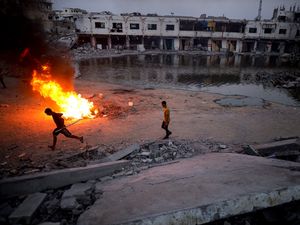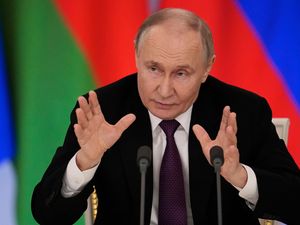Hamas says it got ‘positive response’ from mediators to ceasefire amendments
But a spokesman for the group added that a date for further negotiations has not been set and ‘depends on the response’ of Israel.

A spokesman for Hamas has said that the group’s proposed amendments to the most recent US proposal for a ceasefire in Gaza “have been met with a positive response by the mediators” but “the official Israeli position has not yet become clear”.
“The date of the negotiations has not yet been set and this depends on the response of (Israel),” Hamas spokesman Jihad Taha said on Friday.
He added that the position of Hamas on the proposal is “unified” between the group’s military leadership in Gaza and its political leadership outside, without elaborating.

On Wednesday, the Palestinian militant group said it had sent proposed amendments to the mediators, Egypt and Qatar, in response to the latest ceasefire proposal put forward by the US.
US officials have said the first phase in the current proposal would see a “full and complete ceasefire,” a withdrawal of Israeli forces from all densely populated areas of Gaza and the release of a number of hostages, including women, older people and the wounded, in exchange for the release of hundreds of Palestinian prisoners.
The parties would negotiate the terms of the second phase during the 42 days of phase one.
Under the current proposal, Hamas could release all of the remaining men, both civilians and soldiers, during the second phase.
In return, Israel could free an agreed-upon number of Palestinian prisoners and detainees.
The releases would not occur until “sustainable calm” takes effect and all Israeli troops withdraw from Gaza.

The third phase would see the return of the remains of hostages.
The mechanism for the transition from the first to second phase has been the main sticking point in the negotiations so far.
Hamas has insisted on a permanent end to the war, while Israeli officials have said they would not end the war before destroying Hamas’ political and military capabilities.
Post-war governance and security control of the enclave has also been a contentious issue.
Hamas said in a statement on Friday that it rejects “plans to bring foreign forces into the (Gaza) Strip under any name or justification” and that administration of Gaza “is a purely Palestinian matter, agreed upon by our Palestinian people in all their diversity”.
The US has previously said that countries like Saudi Arabia, Jordan, Qatar, the United Arab Emirates and Turkey could consider participating in and contributing to “day after” scenarios for the Palestinian territory.

Meanwhile, Palestinian authorities say seven people were killed on Friday during an Israeli military operation in the area of the West Bank city of Jenin, where the Israeli military said it had been carrying out “counterterrorism activity” that included an airstrike.
The military said Israeli soldiers had “encircled a building where terrorists have barricaded themselves in” and the soldiers had exchanged fire with those inside, while an airstrike had “struck several armed terrorists” in the area.
The Palestinian Health Ministry said a total of seven people had been killed, but did not specify whether they died in the exchange of fire or the airstrike.
The Islamic Jihad militant group named four of the dead as its members.





